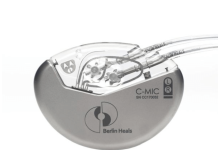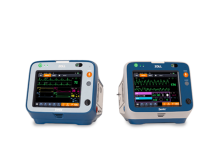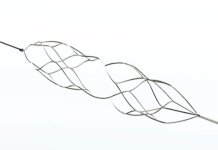Neuspera Medical has obtained U.S. Food and Drug Administration (FDA) approval for its integrated sacral neuromodulation (iSNM) system to treat urinary urge incontinence (UUI).
The iSNM system provides UUI patients an alternative to a traditional SNM. UUI is a major component of overactive bladder, a condition that impacts about one in five women in the U.S.
Related: FDA grants expanded clearance for Levita Magnetics surgical robot
A smart, miniaturized neurostimulator is implanted near the sacral nerve. Therapy is activated using an external disc worn on the lower back for about two hours a day. When not in use, the therapy disc charges wirelessly.
The system removes complications related to implanted batteries and supports complex neuromodulation therapy delivery. Six-month pivotal trial data demonstrated the Neuspera iSNM is as effective as established SNM therapies and removes the discomfort, surgical risks, and cosmetic concerns of implanted batteries.
The study of 128 patients implanted with the therapy showed 84.2% of patients had a 50% or more reduction in urgent leaks. 84% of patients who responded to treatment experienced an over 75% reduction in UUI symptoms.
42% of responsive patients were completely “dry,” with 100% reduction of UUI symptoms. There was a 3.5x clinically significant quality of life improvement as well, with a reduction in voids and urgent episodes.
“Neuspera is setting a new standard in UUI therapy with the first integrated SNM system,” said Dave Van Meter, CEO of Neuspera. “Our mission is to remove barriers to care with a smart, patient-centered solution that truly improves quality of life for the millions impacted by UUI. This FDA approval is a proud and meaningful moment for the entire Neuspera team and our clinical partners, whose passion and dedication made it possible.”




